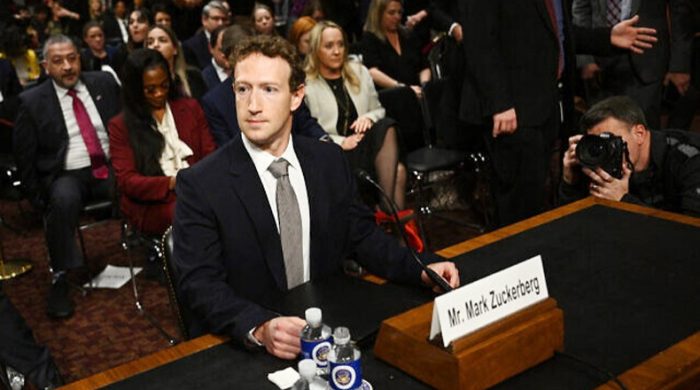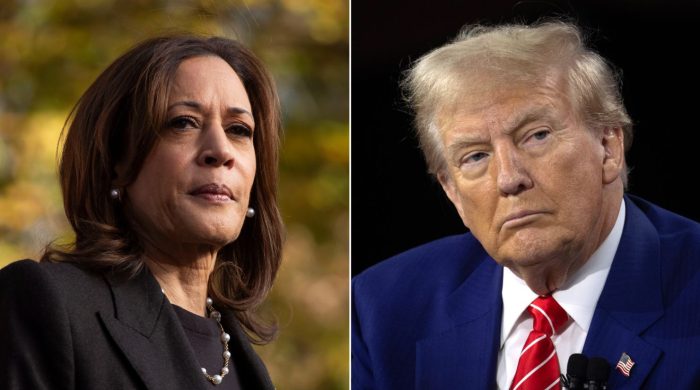Social media, congress and child safety

- Update Time : Tuesday, February 6, 2024
- 29 Time View

IT WAS a struggle to see how a child’s welfare was relevant in the latest, shrill debates about technology taking place on The Hill. The Senate Judiciary Committee and the leaders of social media companies were on show to thrash out matters on technology and their threats on January 31 in a hearing titled ‘Big Tech and the Online Child Exploitation Crisis.’ The companies present: X Corp, represented by Linda Yaccarino; TikTok Inc, fronted by Shou Chew; Snap Inc, by Evan Spiegel; Meta and Mark Zuckerberg; and Jason Citron of Discord Inc.
Senator Dick Durbin (D-IL) got the ghoulish proceedings underway with a video featuring victims and survivors. ‘I was sexually exploited on Facebook,’ declares one. ‘I was sexually exploited on Instagram,’ comes another. ‘I was sexually exploited on X.’ And so forth.
Exploitation leads to distress and worse. ‘The child that … gets exploited is never the same again,’ says a parent. One lost their son to suicide after being exploited on Facebook. Then, the failings of indifferent Big Tech operatives are carted out. ‘How many more kids will suffer and die because of social media?’ goes the tune. ‘We need Congress to do something for our children and protect them.’
This supplied Durbin the ideal, moralistic (and moralising) springboard. And nothing excites those in Congress more than a moral crisis from which much mischief can be made. There was, he solemnly declared, a ‘sexual exploitation is a crisis in America.’ In the decade from 2013 to 2023, the National Center for Missing and Exploited Children had received and increase from 1,380 cyber tips per day to 100,000 daily reports. The modern smartphone has become a hellish conduit of exploitation. ‘Discord has been used to groom, abduct and abuse children. Meta’s Instagram helped connect and promote a network of paedophiles. Snapchat’s disappearing messages have been co-opted by criminals who financially extort young victims. TikTok has become a ‘platform of choice’ for predators to access, engage, and groom children for abuse’.
From the Republican side, South Carolina Senator Lindsey Graham saw social media companies in their current design and operation as ‘dangerous products. They’re destroying lives, threatening democracy itself. These companies must be reined in or the worst is yet to come.’
The senators were ploughing familiar ground: the corrosion of mental health including instances of self-harm and suicide, the role of social media in perpetrating a number of crimes (drug dealing, sextortion) and the blissful digital heavens such companies have created for any number of unsavoury cults, ideologies and inclinations.
What, then, of it? For one thing, Zuckerberg, who was making his eighth appearance at such a hearing, was hardly going to offer anything constructive — at least in a binding sense. In the month just passed, internal Meta documents revealed a number of concerns from employees that the company’s messaging apps had featured in various instances of child exploitation. Little was done about it, which was precisely to be expected.
As a useful whipping boy of Congressional outrage, Meta’s CEO provided the perfect platform for senatorial outrage. Senator Josh Hawley (R-MO) could spice the airwaves (and the global social media universe) with his righteous display: ‘There’s families of victims here today. Have you apologised to the victims? Would you like to do so now?’ Zuckerberg, reminded that he was on national television, did the performing seal act, turning around and facing the audience. A number of photos of deceased children were helpfully offered to torment the guilty soul. ‘I’m sorry,’ Zuckerberg responded. ‘Everything that you all have gone through, it’s terrible. No one should have to go through the things that your families have suffered and this is why we invest so much and are going to continue doing industry leading efforts to make sure that no one has to go through the types of things your families have had to suffer.’
It was a fantastically bloodless response, filled with the usual Big Tech baubles: industry standards would be met, innovations would be made, investments would follow, and new products of sterling safety engineered. As Zuckerberg went on to explain to Hawley, ‘I view my job and the job of our company is building the best tools that we can keep our community safe.’ But the model as to how such companies extract, use, and monetise information — surveillance capitalism — is left untouched. Hawley’s cosmetic suggestion is to create a compensation fund for victims; the social media business model can continue to operate untrammelled because no member of Congress wants to be tarnished with the anti-corporation brush. Money always comes first.
Another great threat was also being teased out in the combative questions posed to the social media CEOs. Their companies have produced hideous, wounding and in some cases lethal products, all of which continue being used by billions, including haranguing, morally indignant politicians and unsuspecting children. But Congress also showed why it is also a problem to the very people it claims to be protecting.
The form this takes is the Kids Online Safety Act, a co-sponsored initiative from Senators Richard Blumenthal (D-CT) and Marsha Blackburn (R-TN). KOSA ostensibly deals with child safety, intended to empower the attorney general of every state, and the Federal Trade Commission to file lawsuits against apps or websites for failing to ‘prevent or mitigate’ the various harms that supposedly affect children. Its effect, far from protecting children, will be something quite different, elevating the ‘duty of care’ principle to scrub content that might cause ‘anxiety’, ‘depression’ and any other number of undesirable behaviours.
The Electronic Frontier Foundation describes KOSA as a censorship bill. And it is easy to see why, with any item of information or news shared susceptible to being banned or modified for causing distress to children. ‘Ultimately,’ writes the EFF’s Jason Kelley, ‘no amendment will change the basic fact that KOSA’s duty of care turns what is meant to be a bill about child safety into a censorship bill that will harm the rights of both adult and minor uses.’
Fight for the Future Director Evan Greer was also deeply unimpressed, telling TechCrunch that, ‘Dozens of human rights, civil liberties, LGBTQ+ and racial justice groups oppose the reckless legislation being proposed at today’s hearing.’
In an attempt to stream roll the CEOs into supporting the bill, Senator Blumenthal asked where they stood on its merits. Spiegel and Yaccarino expressed support for KOSA. Those from TikTok, Meta and Discord dithered and expressed reservations. Citron was diplomatic. ‘We very much think that a national privacy standard would be great.’ Chew noted that ‘some groups have raised some concerns’. Zuckerberg blandly stated that, ‘These are nuanced things.’
The hearing of January 31 ended with an open conspiracy against genuine change in the social media ecosystem. Instead of focusing on privacy and surveillance capitalism, the senators were more interested in the regulation of outrage over undesirable content. Instead of considering genuine reform, the CEOs made non-binding promises about cosmetic adjustments and fictional industry standards. Along the way, the children were well and truly forgotten.
Dissidentvoice.org, February 5. Binoy Kampmark was a commonwealth scholar at Selwyn College, Cambridge. He lectures at RMIT University, Melbourne.

























